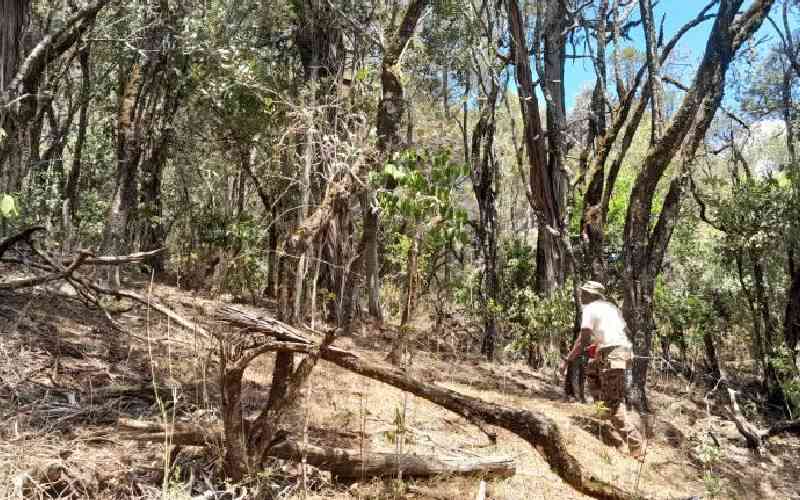Jeremiah Mwenda, the head guide at Ngare Ndare Forest, walks through the endangered red cedar trees. [Mactilda Mbenywe, Standard}
×
The Standard e-Paper
Smart Minds Choose Us

Jeremiah Mwenda, the head guide at Ngare Ndare Forest, walks through the endangered red cedar trees. [Mactilda Mbenywe, Standard}
Ngare Ndare forest, nestled in the embrace of Mount Kenya, stands as a sanctuary for millions of endangered red cedar trees, each a silent guardian of the land's heritage.